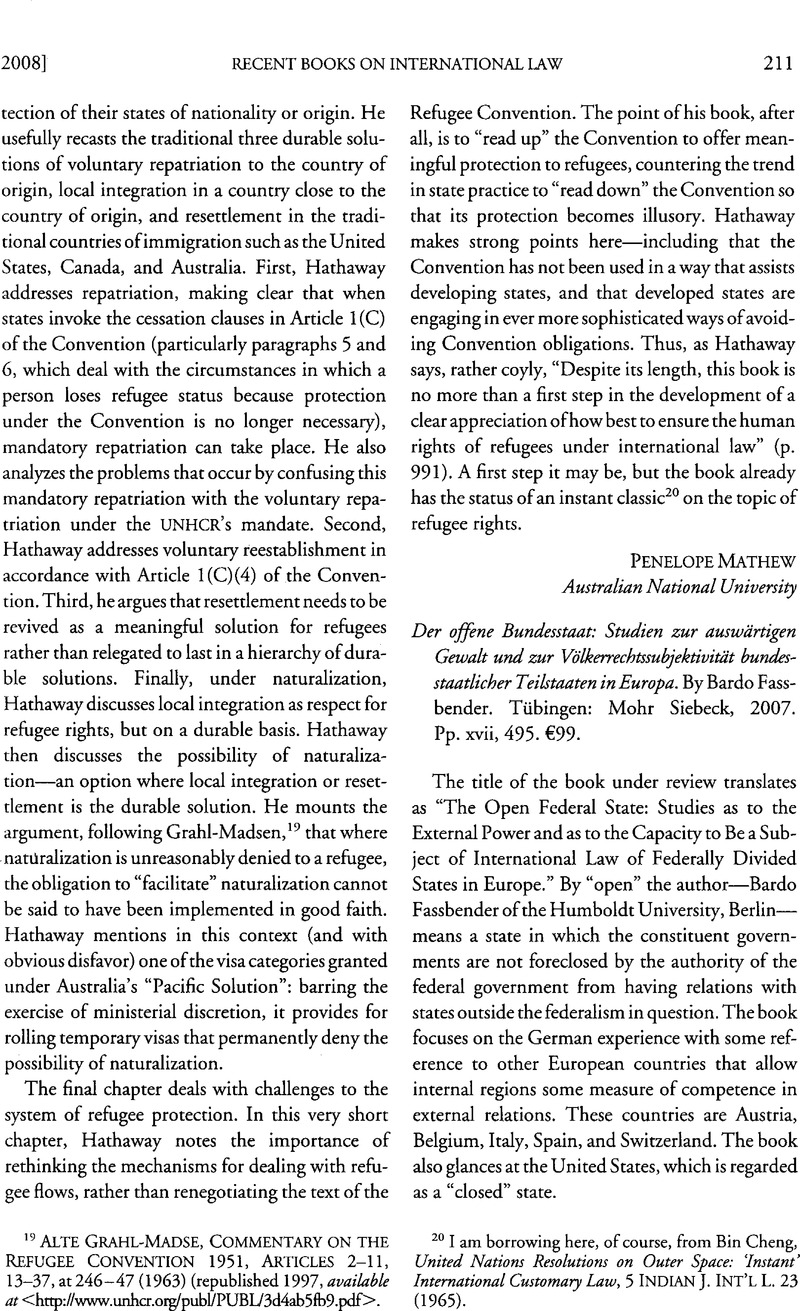No CrossRef data available.
Published online by Cambridge University Press: 27 February 2017

1 United States v. Belmont, 301 U.S. 324, 331 (1937).
2 Oliver, Lissitzyn, Territorial Entities Other Than Independent States in the Law of Treaties , 125 Recueil Des Cours 1, 23 (1968 III)Google Scholar, finds four consents, three of which relate to a body established to support a Peace Bridge across the Niagara River, with a fourth allowing Canadian participation in the Northeastern Interstate Forest Fire Protection Compact.
3 The case law consists of McHenry County v. Brady, 37 N.Dak. 59, 163 N.W. 540 (1917), upholding an arrangement between two American counties and a Canadian municipality for a drain system on the Mouse River crossing the border into Canada. Cuyler v. Adams, 449 U.S. 433, 440 (1981), recognized that there is a subset of “subcompact” agreements between states that do not require consent. However, the relevance of authority on interstate agreements to international ones is questionable.
4 Surveys have come up with numbers of “arrangements,” “interactions,” or “agreements” ranging up to 766. Interestingly, inquiries to Canadian authorities produced higher numbers than inquiries to American entities. Luigi, di Marzo, Component Units of Federal States and International Agreements 60 (1980)Google Scholar. For commentary see Raymond, Spence Rodgers, The Capacity of States of the Union to Conclude International Agreements: The Background and Some Recent Developments , 61 AJIL 1021 (1967)Google Scholar, and Richard, Bilder, The Role of States and Cities in Foreign Relations , 83 AJIL 821 (1998)Google Scholar.
5 Clark v. Allen, 331 U.S. 503, 517 (1947), said that California had not with such legislation “entered the forbidden domain of negotiating with a foreign country … or making a compact with it contrary to the prohibition of Article I, Section 10 of the Constitution.” But see Zschernig v. Miller, 389 U.S. 429 (1968).
6 184 U.S. 270(1902).
7 23 F. Cas. 927 (C.C.S.D.N.Y. 1874) (No. 13,887).